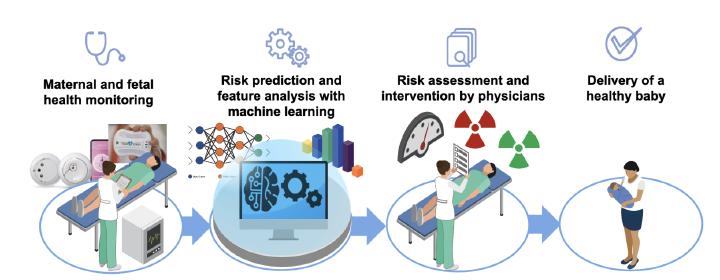Neonatal Risk Modeling and Prediction

Abstract
Electronic fetal monitoring (EFM) is designed for the early detection of fetal risks and the prevention of serious neurological impairment but suffers from high false positive rates. The Fetal Reserve Index (FRI) is an expert-based system that combines EFM with maternal, obstetrical, and fetal risk factors and displays superior performance in risk detection than EFM alone. Towards translating the FRI into an automated risk prediction system that can make recommendations to clinicians in real-time, we here develop machine learning classifiers that calculate feature importance based on historical data from labor cases and predict the risk of developing neurological impairment. We train random forest and multilayer perceptron (MLP) models to classify abnormal and normal delivery cases and to assess the model performance using a dataset of 1462 labor cases. The random forest classifier achieves a macro average f-1 score of 0.82 with an abnormal case recall of 0.59. Alternatively, MLP classifiers provide higher abnormal case recall at a cost of lower accuracy and macro average f-1 score. Future work will aim to optimize weightings and trade-offs of statistical performance to achieve further improvements for clinical practice.